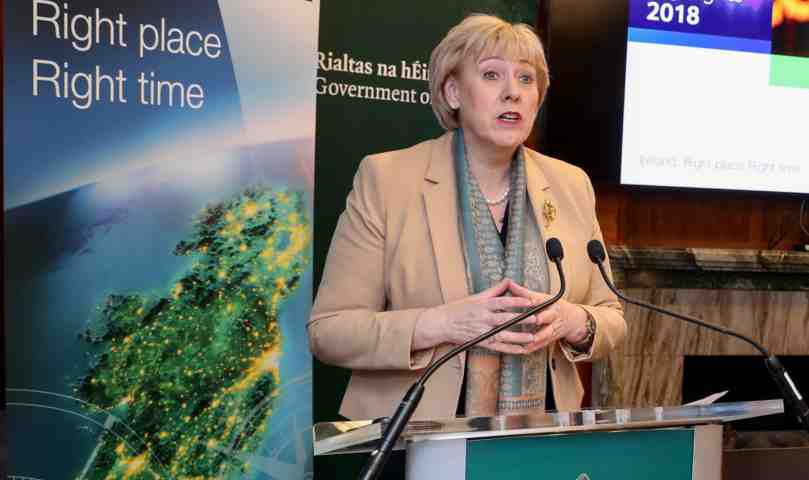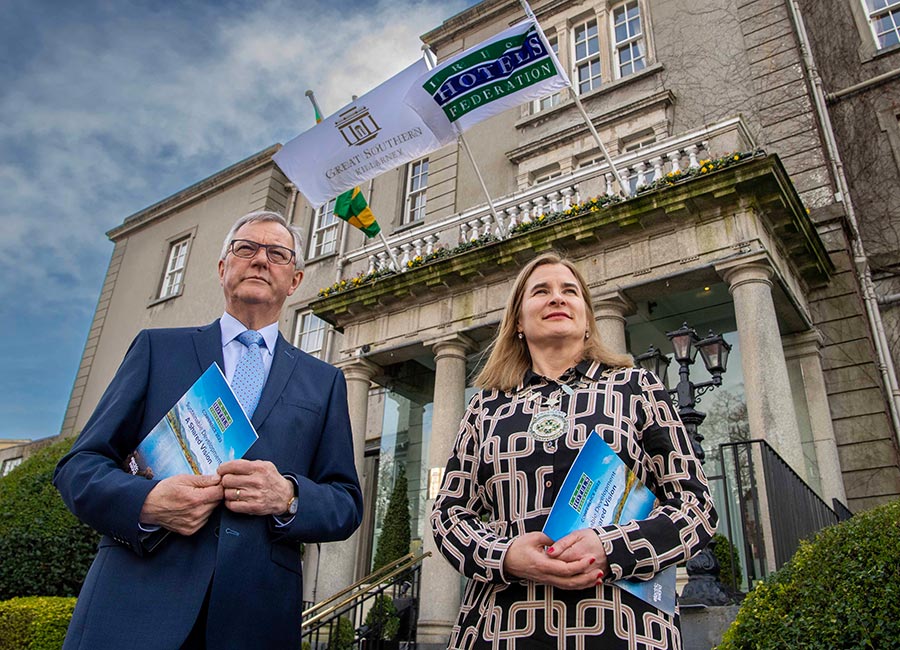The government is urging exporting Irish businesses to register with Revenue for a customs number, which they will need if they want to continue trading with the UK after Brexit.
Businesses that intend to import or export to the UK post-Brexit can only do so with a customs number called an Economic Operators Registration and Identification (EORI) number.
An EORI number is already used by any business trading with a non-European Union (EU) country, and is an EU customs requirement for trading with third countries. If a business does not have an EORI number post-Brexit, it will not be able to move its goods.
Business minister Heather Humphreys (pictured) said: “Be they a local retailer who buys their fresh and frozen goods from a UK supplier, or a restaurant owner who sources key ingredients from the UK, they will need their number to protect their business from delays and other Brexit impacts,” she said.
Dr Brian Keegan, Director of Public Affairs with Chartered Accountants Ireland, commented: “Regardless of the form Brexit will take, Irish traders need to file customs returns before they can move their goods to, from or through the UK. To complete the returns, traders need to know the goods classification number or commodity code, the customs value of goods and the origin of the goods to determine the amount of any duty payable. Otherwise goods will be detained at ports and borders because Revenue officials will check that the proper declarations are in place. We are hearing about a critical shortage of customs expertise in the market.”
Revenue estimates that customs declarations are expected to increase from 1.4 million to 20 million per year once the UK leaves the EU.
Dr Keegan added: “Revenue has hired additional staff to deal with customs declarations and checks and businesses need to be proactive in their preparations to be able to complete paperwork. While some traders are experienced in the customs formalities required to import and export outside of the EU, it will be a first for many other businesses, particularly the smaller enterprises. We are urging these businesses to use the time between now and October 31 to upskill in the area of customs.
“Getting an EORI number takes three minutes and should be the starting point in terms of their plans but by no means the only thing they should do. Businesses need to look at customs software, get familiar with commodity codes and think about who will do the customs administration,” said Dr Keegan.
Customs Procedures
Minister of state Pat Breen also called on businesses to decide whether they plan to carry out customs procedures themselves or use a customs agent to act on their behalf.
“Businesses who move their goods to or from mainland Europe using the UK landbridge need to be aware that customs procedures apply to them post Brexit,” said Breen.
“There is a simplified transit customs process for goods using the landbridge, but to use it businesses must put in place a Revenue-approved, comprehensive financial guarantee. This process can take time, so I urge businesses to start by consulting with their financial provider and Revenue straight away. Alternatively, business can engage a customs agent or logistics company to do so.”











